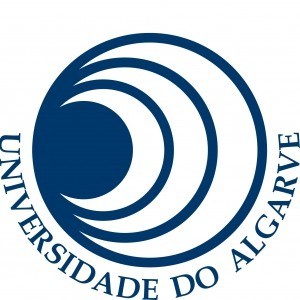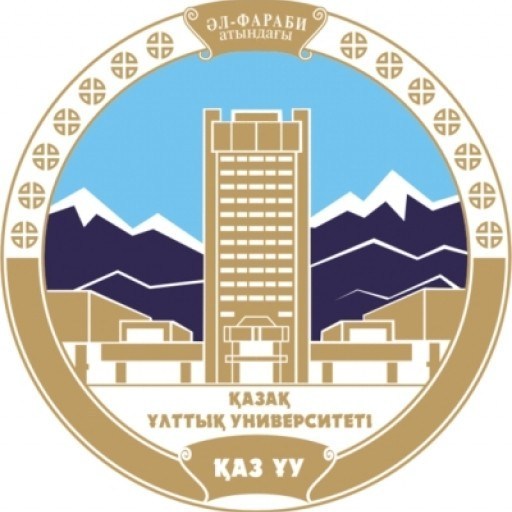Photos of university / #sdstatepics
The Bachelor of Science in Chemistry at South Dakota State University provides students with a comprehensive education in chemical principles, laboratory techniques, and scientific inquiry. This program is designed to prepare graduates for a wide range of careers in industry, research, education, and healthcare, or to pursue advanced degrees in chemistry or related fields. The curriculum combines foundational coursework in organic, inorganic, analytical, physical, and biochemistry with practical laboratory experience to develop the analytical, problem-solving, and critical thinking skills essential for success in the sciences. Students engage in hands-on experiments, research projects, and collaborations that foster an understanding of chemical processes and their applications in real-world scenarios. The program emphasizes scientific rigor and encourages students to consider the ethical and societal implications of their work. Additionally, students have opportunities to participate in research with faculty members, internships with local industries, or study abroad programs, enhancing their professional development and global perspective. The faculty are dedicated to providing personalized mentorship and ensuring students gain the technical expertise necessary to excel in their careers. Upon graduation, students are well-equipped for employment in areas such as pharmaceuticals, environmental science, materials science, or education, or for further study through graduate or professional schools. The Bachelor of Science in Chemistry at South Dakota State University is committed to fostering a stimulating academic environment that promotes discovery, innovation, and lifelong learning in the chemical sciences.
The Bachelor of Science in Chemistry at South Dakota State University offers students a comprehensive and rigorous education in the fundamental principles of chemistry, preparing them for diverse career opportunities in science, industry, and academia. This undergraduate program is designed to develop students' understanding of chemical theories, laboratory techniques, and practical applications through a combination of coursework, laboratory experiments, and research experiences. Students will explore core areas such as organic chemistry, inorganic chemistry, physical chemistry, analytical chemistry, and biochemistry, allowing for a well-rounded knowledge base essential for advanced study or employment in scientific fields. The program emphasizes hands-on laboratory experience, providing students with the skills necessary to perform precise chemical analyses, operate sophisticated instrumentation, and interpret experimental data accurately. Additionally, the curriculum incorporates modern computational methods and safety practices to prepare students for contemporary challenges in chemistry.
Throughout the program, students are encouraged to engage in research projects, internships, and collaborations with faculty members, fostering critical thinking, problem-solving abilities, and scientific communication skills. The university also offers opportunities for students to participate in undergraduate research, contributing to real-world scientific investigations and publications. The degree program aims to equip graduates with a solid foundation for pursuing graduate studies in chemistry or related disciplines, as well as for entering careers in pharmaceuticals, environmental science, materials development, and various industrial sectors. Dedicated advising and career services are available to help students navigate their academic pathways and transition successfully into the workforce or advanced education. With access to state-of-the-art laboratories and resources, students in the Chemistry program at South Dakota State University gain the knowledge, experience, and confidence necessary to excel as future scientists, innovators, and leaders in the chemical sciences.
Program requirements for the Bachelor of Science in Chemistry at South Dakota State University include completing a total of approximately 120 semester credit hours. Students must fulfill general education requirements, which typically encompass courses in English, social sciences, humanities, mathematics, and natural sciences, gaining a broad foundational knowledge. A core sequence of chemistry courses is essential, including General Chemistry I and II, Organic Chemistry I and II, and Organic Chemistry Laboratory I and II. Students are also required to take introductory courses in analytical chemistry, inorganic chemistry, and physical chemistry, which provide a comprehensive understanding of chemical principles and methodologies. Laboratory coursework forms a significant component, emphasizing hands-on laboratory skills, safety procedures, instrumentation, and data analysis, vital for practical competence in the field. Additionally, students must complete courses in mathematics, often including calculus, to develop quantitative analytical skills necessary for advanced chemical problem-solving. To support interdisciplinary understanding, courses in biochemistry may be recommended or required, especially for students interested in biochemical applications. Electives within the chemistry department allow students to specialize or diversify their knowledge in areas such as environmental chemistry, materials science, or forensic science. A capstone experience, such as a senior research project or thesis, is typically required to demonstrate proficiency in scientific investigation and critical thinking. Some programs may also include internships or cooperative education opportunities to provide real-world experience in industry or research settings. Throughout the program, maintaining a minimum GPA in major coursework is usually necessary for graduation. Overall, the curriculum is designed to prepare students for careers in chemistry, related scientific fields, or for advanced study at the graduate level.
The Bachelor of Science in Chemistry at South Dakota State University offers various financing options to support students throughout their academic journey. Tuition and fees vary depending on residency status, enrollment status (full-time or part-time), and additional expenses such as laboratory fees, supplies, and materials required for coursework and laboratory experiments. In-state students benefit from lower tuition rates compared to out-of-state students, making the program more accessible for residents of South Dakota. Financial aid opportunities include federal and state grants, scholarships, work-study programs, and federal student loans. The university maintains a comprehensive scholarship program specifically for chemistry students, recognizing academic achievement, leadership qualities, and financial need. Students are encouraged to complete the Free Application for Federal Student Aid (FAFSA) annually to determine eligibility for federal aid programs. Additionally, South Dakota State University offers departmental scholarships targeted at chemistry majors, which can significantly reduce the overall cost of education. Work opportunities on campus, such as research assistantships and teaching assistantships within the chemistry department, may also provide stipends or tuition waivers to help offset costs. Students are advised to explore external scholarship opportunities from professional organizations related to chemistry and science, as well as community foundations and private donors. The university's financial services office provides counseling services to help students develop personalized financial plans and manage educational expenses effectively. Payment plans may be available for students to spread payments over the semester or academic year, easing financial burdens. International students have specific financing options, which may include private scholarships, sponsorships, or specific federal aid programs if eligible. Overall, South Dakota State University strives to make chemistry education accessible through a variety of financial support mechanisms, ensuring that students from diverse backgrounds can pursue their academic and career goals in chemistry without undue economic hardship.
The Bachelor of Science in Chemistry at South Dakota State University offers students a comprehensive education in the fundamental principles of chemistry, including organic, inorganic, physical, and analytical chemistry. The program aims to prepare students for careers in scientific research, industry, education, or further postgraduate studies. The curriculum is designed to develop critical thinking, problem-solving skills, and a strong foundation in laboratory techniques and scientific communication. Students have access to state-of-the-art laboratories and research facilities, enabling hands-on learning and participation in cutting-edge research projects. The program also emphasizes the importance of ethics and safety in scientific work. Students are encouraged to engage in internships and cooperative education opportunities with local industries and research institutions to gain practical experience. The faculty members are actively involved in research across various domains of chemistry, providing mentorship and opportunities for students to participate in research activities. Graduates of the program often pursue further education in graduate or professional programs, or they find employment in fields such as pharmaceuticals, environmental science, forensics, or materials science. The program is accredited and regularly reviewed to ensure high academic standards. Overall, the Bachelor of Science in Chemistry at South Dakota State University is designed to prepare students for successful careers in scientific fields, offering a rigorous curriculum, research opportunities, and a supportive academic environment.









